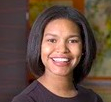Have you ever sat at the computer and googled your family and friends? Recently, I googled my Grandma, Rev. Dr. June Morehead Marable. Her honors and accolades highlighted on the screen, as I scrolled down the page and marveled at her dissertation description. Her stories of growing up as a minister’s child filled my head, and I imagined her white gloves, sharp tailored suits, and of course matching hats. We called her “Groovy Grandmother” growing up, because she wore the title “woman” well and was classy, intelligent,beautiful and sophisticated. She also jumped on the trampoline, roller-skated, and played ball with us.
Several years ago, I started noticing my grandma’s memory was fading. She began calling me my sister’s name, Malaika, and reiterated the same stories about the pledging days and hymns of Alpha Kappa Alpha Sorority, Incorporated. I soon knew those stories so well, that I could finish them for her. I miss those stories now.
Today, Alzheimer’s is trying to control her thought process. There are times when she will surprise you and remember important aspects of your life, or lecture to you as if you were a pupil in her classroom. The sparkles in her eyes are still bright, but have become a bit more distant through the years, and are fading slowly.
Throughout my grandma’s journey, my Aunt Madonna has been there every step of the way. She has been the researcher, guide, and parent for her mom. Observing this transition of parent and child interaction has been an eye-opening experience and one shown with grace and unconditional love.
There are some people in the world that are just remarkable. My grandma and aunt are two of those people. Madonna’s journey of assisting her mom needed to be shared. I asked her to provide helpful tips for those of you facing the same situation of taking care of an elderly parent.
Madonna began, “My personal journey with my mom’s condition was at first viewed as unbelief, rationalizations, and excuses. I dismissed her often times irrational behaviors, negative attitudes, paranoia, and forgetfulness. I attributed the changes in mom as a reaction to a series of external challenges and changes which she had no control of.”
In reflection she continued, “My mother’s diseases progressed when she turned 70 years old. I noticed she would often lose her keys, call the locksmith to install locks, and take them off all the doors in her house. Every door.” These activities were unusual for my grandma. Being an educator, she was always very sharp and aware of her surroundings. Her background was quite extensive for an older African American woman, having earned four degrees including a Ph.D. in Education, and a Masters in Divinity. Who knew a deadly brain disorder would slowly consume a once vital, brilliant woman?
“She couldn’t remember how to get back home and forgot to pay her bills. She didn’t want to let go of control, however over a period of time, one by one, I convinced her to allow me to assist her with managing her household and responsibilities,” explained my aunt.
Aunt Madonna felt alone as her mom’s primary care giver and experienced insurmountable grief. “I felt alone, like no one understood.” She decided to change the way she was feeling and started researching ways to assist her mom. My grandma is doing much better now, because my aunt stepped in to assist her when she needed it most.
Tips for Caregivers:
- Take time to care for yourself physically, emotionally, and spiritually
- Join support groups, if needed
- Don’t try to do everything yourself – ask for help
- Exercise
- Eat healthy
- Reduce stress
- Rest and meditate
- Forgive











Read 1 comment and reply